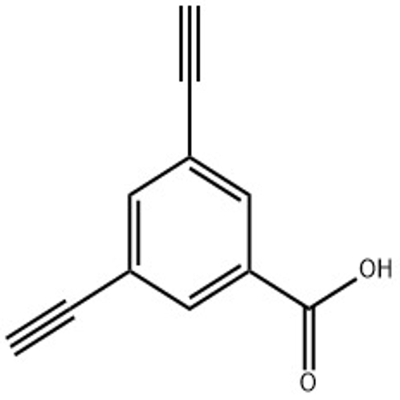-
Categories
-
Pharmaceutical Intermediates
-
Active Pharmaceutical Ingredients
-
Food Additives
- Industrial Coatings
- Agrochemicals
- Dyes and Pigments
- Surfactant
- Flavors and Fragrances
- Chemical Reagents
- Catalyst and Auxiliary
- Natural Products
- Inorganic Chemistry
-
Organic Chemistry
-
Biochemical Engineering
- Analytical Chemistry
-
Cosmetic Ingredient
- Water Treatment Chemical
-
Pharmaceutical Intermediates
Promotion
ECHEMI Mall
Wholesale
Weekly Price
Exhibition
News
-
Trade Service
2,4-Dichloro-6-(ethoxymethyl)pyrimidine, also known as EdU, is a chemical compound commonly used in the chemical industry for a variety of applications.
This article will explore the use of EdU in the chemical industry, its properties and synthesis, and its applications in different industries.
Properties and Synthesis of EdU
EdU is a colorless liquid with a mild, unpleasant odor.
It is slightly soluble in water and highly soluble in organic solvents such as ethanol and methanol.
EdU is a derivative of pyrimidine, a class of organic compounds that play important roles in DNA synthesis and repair.
The synthesis of EdU involves the reaction of 2,4-dichloro-6-hydroxypyrimidine with methyl iodide in the presence of a strong acid catalyst, such as hydrochloric acid.
Applications of EdU in the Chemical Industry
EdU is widely used in the chemical industry due to its versatile properties and applications.
One of its most common applications is as a reagent in the synthesis of nucleosides and nucleotides, which are important building blocks for DNA and RNA synthesis.
EdU is also used as a phosphorylating agent in the production of phosphoric acid esters, which are used in the manufacture of plastics, dyes, and detergents.
Another application of EdU is in the production of ethoxylates, which are used as surfactants in the manufacture of personal care products, household cleaning agents, and textile lubricants.
EdU is used as a building block for the synthesis of ethoxylates through a process known as ethoxylation.
EdU is also used in the production of intermediates for the synthesis of active pharmaceutical ingredients (APIs) and in the synthesis of agrochemicals.
It is also used in the production of complex chemicals such as vitamins, amino acids, and antibiotics.
Conclusion
In conclusion, 2,4-dichloro-6-(ethoxymethyl)pyrimidine, also known as EdU, is a versatile chemical compound with a wide range of applications in the chemical industry.
Its properties as a reagent in the synthesis of nucleosides and nucleotides, a phosphorylating agent in the production of phosphoric acid esters, and a building block for the synthesis of ethoxylates make it a valuable chemical in the industry.
Its applications in the synthesis of APIs, agrochemicals, and other complex chemicals further highlight its importance in the industry.
With proper handling and use, EdU is a safe and effective chemical that can be used in a variety of industrial applications.







